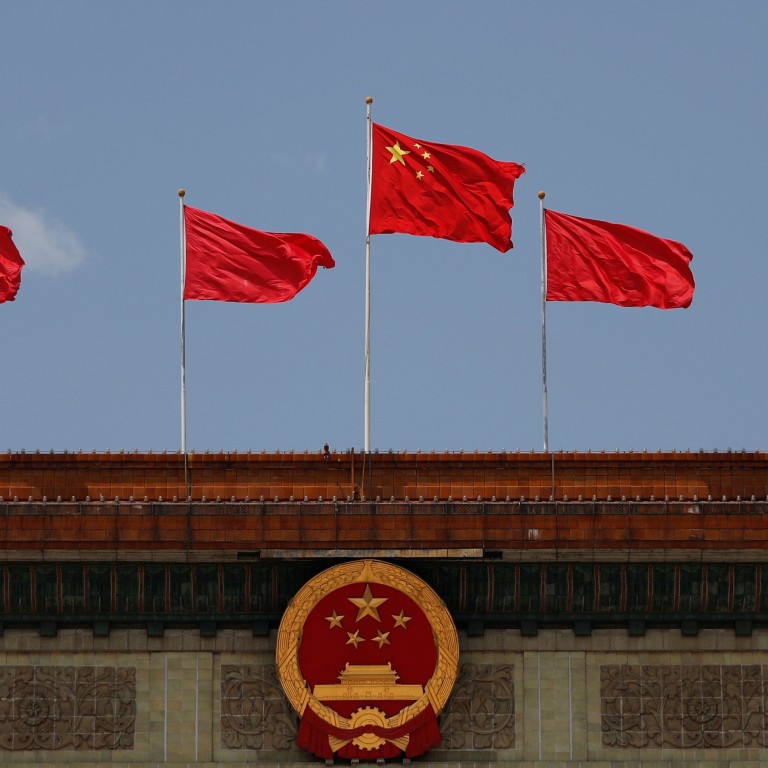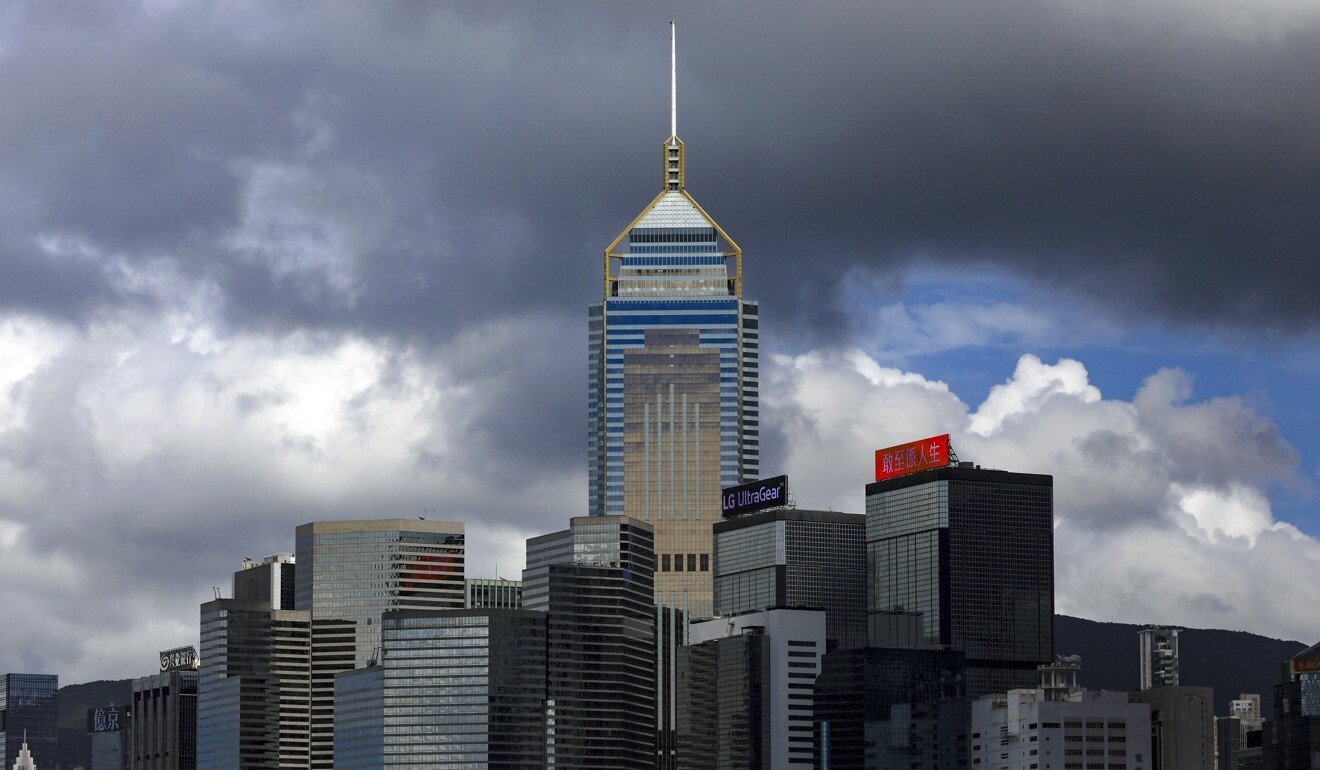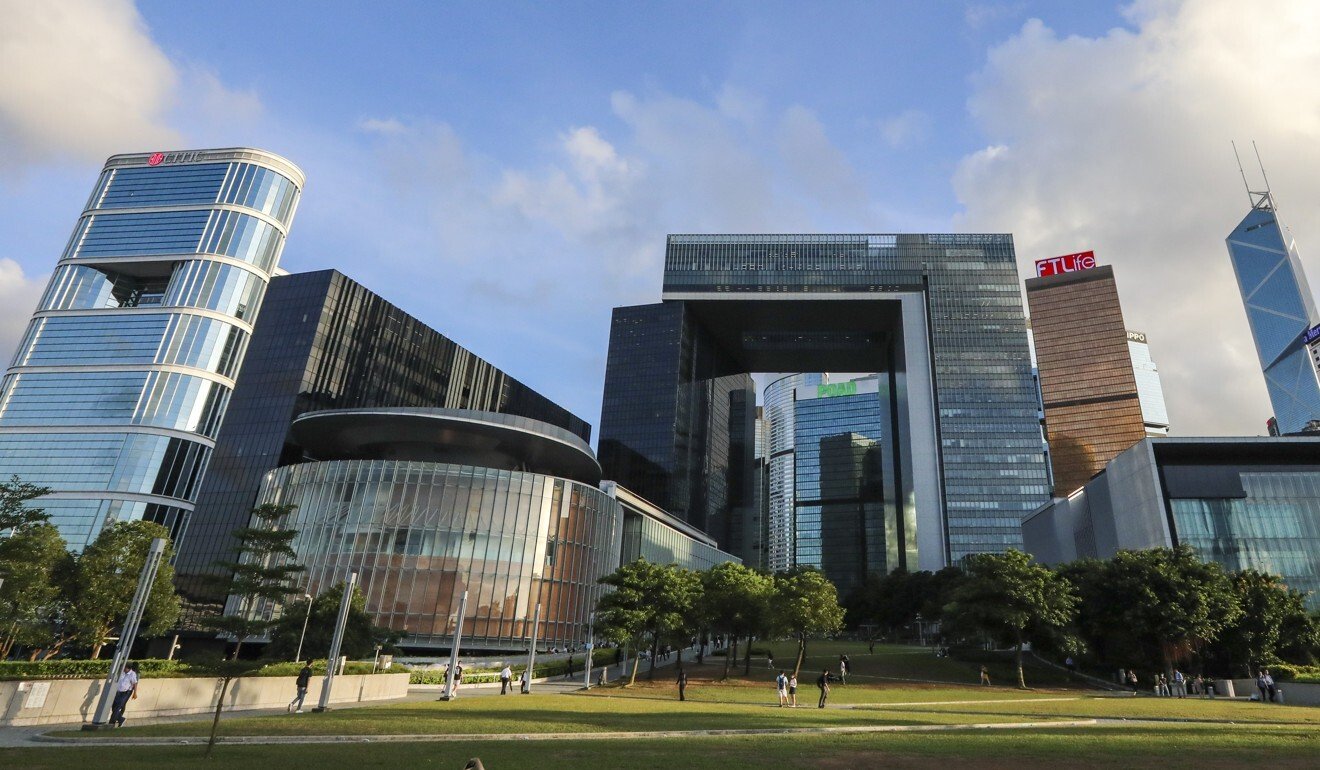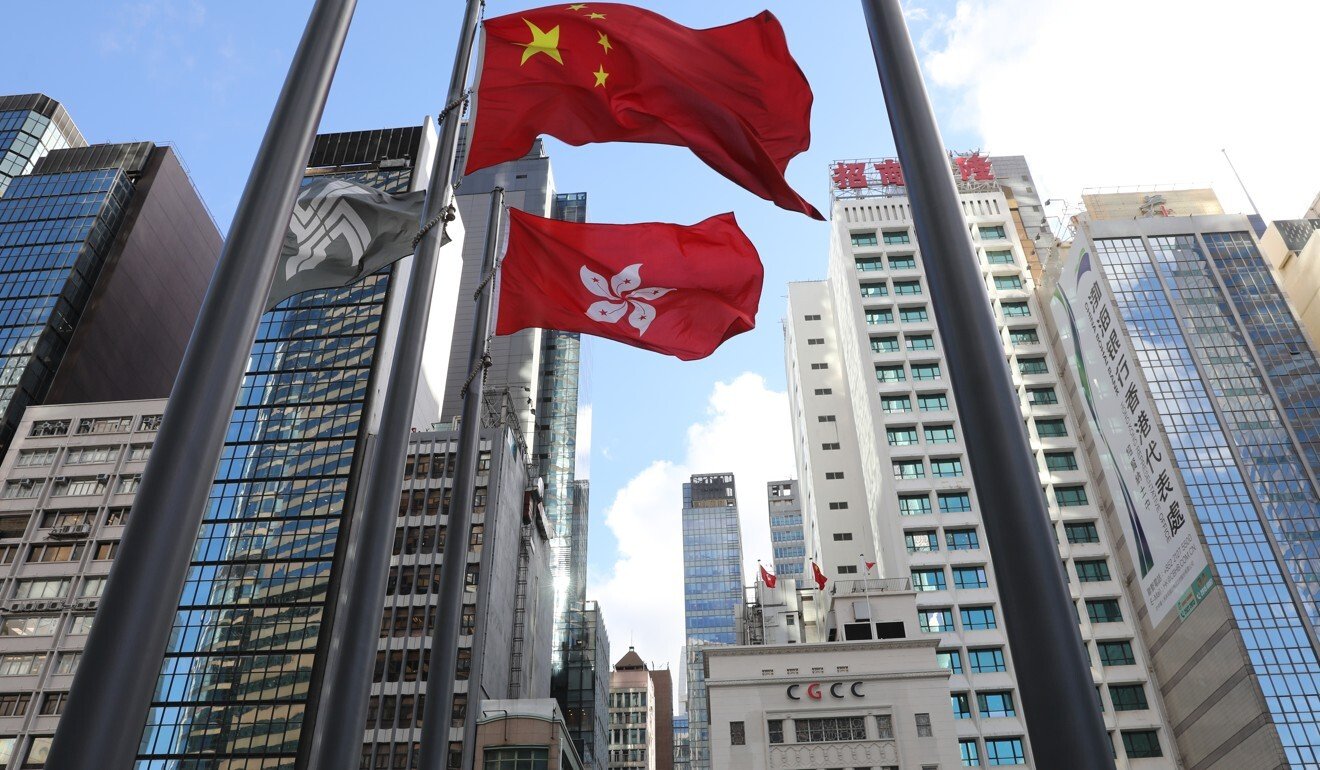
Beijing unexpectedly postpones vote on adding anti-sanctions legislation to Hong Kong’s Basic Law
- The law, designed to punish companies that abide by US sanctions or fail to carry out China’s, has prompted anxiety among some foreign investors
- The National People’s Congress Standing Committee will ‘continue to study related issues’, city’s sole delegate to the body tells Post
China’s top legislative body has unexpectedly postponed a vote to introduce a far-reaching anti-sanctions law into Hong Kong’s mini-constitution that would give the city legal teeth to retaliate against Western government attacks.
While the business community is nervous about being caught in the crossfire after the city adopts the law, the sudden U-turn by the central government has raised eyebrows, coming just after Tam Yiu-chung, Hong Kong’s sole delegate to the National People’s Congress (NPC) Standing Committee, predicting earlier this week that the “urgent and necessary” resolution was very likely to be approved.

Explaining the unprecedented postponement, mainland Chinese sources said the central government “hopes to listen to further views on the matter” and “do more legal research”.
“The central government would like to garner more views from various sectors in Hong Kong in the hope of facilitating more mature discussion on the matter,” a mainland source familiar with the matter said.
Another official mainland source based in Hong Kong said the potential backlash among banks was one of the key factors for the postponement.
“Opinions diverged even at the last minute, including from some state-owned financial institutions on how to handle this best in Hong Kong. The central government therefore decided to be more prudent and not to rush,” the source said, while declining to estimate how much more time would be needed for the resolution to be tabled again.
Hong Kong to take ‘at least until next year’ to draft local anti-sanctions law
Two Hong Kong government sources said they had been notified by Beijing about the change of plan, but would have to “wait for further instructions from the central government” before the next move.
Representatives from the business sector welcomed the postponement, seeing it as a sign of keeping the door open for more communication regarding their concerns, while pro-Beijing figures suggested it could signal the central government’s willingness to reconsider whether or not to add the new legislation to the Basic Law, Hong Kong’s mini-constitution.
But some lawmakers cautioned against jumping to conclusions, saying it could mean that Beijing intended to be more specific and hands-on regarding the issue.
As the NPC Standing Committee finished its four-day session in Beijing on Friday, approving a number of other national resolutions, a glaring omission was the expected one to insert the central government’s sanctions law to Annex III of the Basic Law.
Other resolutions approved by the apex body included endorsing a new three-child policy, appointing Beijing’s new education minister, and strengthening personal data privacy rules. There was no mention of the sanction law in state media reports.
Delegate Tam confirmed the postponement of the issue after the meeting, saying the standing committee had decided “not to vote for the time being and will continue to study related issues”.
“I believe this will make the anti-foreign sanctions law even more effective,” he said.

A statement released by the Hong Kong government did not address the delay directly, saying only that central authorities had the city’s well-being at heart.
“The NPC and its standing committee, as the highest authority of the country, make decisions on Hong Kong matters based on the city’s interests. The government will fully support, implement and cooperate [with its decisions],” a the statement read.
The broad national legislation, which the mainland passed in June, empowers Chinese authorities to seize assets from entities that impose sanctions against the country and allows individuals and companies to seek compensation for discriminatory practices in local courts. Businesses can be held liable if they refuse to help Beijing carry out countermeasures.
However, the passage of the law has been met with trepidation in Hong Kong after Beijing indicated last month that it could be applied in the city, sparking concerns among legal experts and businessmen that the legislation would place foreign firms, particularly banks, between a rock and a hard place.
Jimmy Lai pulled strings behind multimillion-dollar sanctions conspiracy, court hears
The city’s officials have sought to reassure the public that the powers will only be used in retaliation for punitive actions taken by foreign governments.
Chief Executive Carrie Lam Cheng Yuet-ngor said her administration would work harder to communicate with the businesses, while confirming that she had suggested to Beijing the law could be adopted in the city through local legislation.
The official Xinhua news agency reported on Tuesday that NPC Standing Committee delegates had scrutinised various draft resolutions, including one on inserting the anti-sanctions legislation into the Basic Law. Shen Chunyao, head of the standing committee’s Legislative Affairs Commission, also gave a briefing on the matter.
Tam, at the time, said it was a matter of urgency for Hong Kong officials to follow up with local legislation to set up a system and mechanism for countering foreign sanctions.
Insiders said the local government had been meeting representatives from business chambers and banks in the past two weeks to hear their concerns as the government was preparing for local legislation.
It is understood that Financial Secretary Paul Chan Mo-po has held meetings with the four largest local business groups, including the 4,000-member Hong Kong General Chamber of Commerce (HKGCC), which aired their concerns over the potential harm the law might bring to the city’s status as a global financial hub.
It was only on Wednesday that Chan abruptly called off some meetings with lawmakers and foreign business chambers scheduled for Thursday and Friday.
“There was nothing much big happening locally in the past three days. It was quite clear that it’s the central government’s call to postpone the voting on the resolution,” a government source said.
Lawmakers revealed to the Post that given the deep apprehension among foreign investors and businesses over the new regulatory regime, financial officials had indicated they would need more information from Beijing before further consultations could resume.

The HKGCC said it welcomed the decision to defer the plan, as “more time is needed to listen to and fully understand the views and concerns of the business sector”.
Hong Kong American Chamber of Commerce (AmCham) president Tara Joseph said her 1,400-member group welcomed the news.
“This law could have a considerable impact on multinational business,” she said. “AmCham very much hopes that the international business community is part of the dialogue so we can all work together to support Hong Kong as the premier destination in China for global businesses.”
Lau Siu-kai, vice-president of semi-official Beijing think tank the Chinese Association of Hong Kong and Macau Studies, said the postponement showed the central government was willing to listen to concerns raised by mainland and foreign business sectors.
“Beijing might even reconsider whether the sanctions law should be inserted into the Basic Law, or if it could be replaced by some other means of retaliation,” he said.
Some pro-establishment lawmakers, however, struck a cautious note, suggesting the postponement could mean Beijing would outline a more specific law for the city.
“The business sector said the national law – with 16 articles – was too vague and unclear, but we are not sure whether it would be better or worse if Beijing got more involved and planned a more detailed law for the city,” one lawmaker, who asked to remain anonymous, said. “We might end up getting a law with 30 articles that causes even more fear.”
Additional reporting by William Zheng and Denise Tsang


